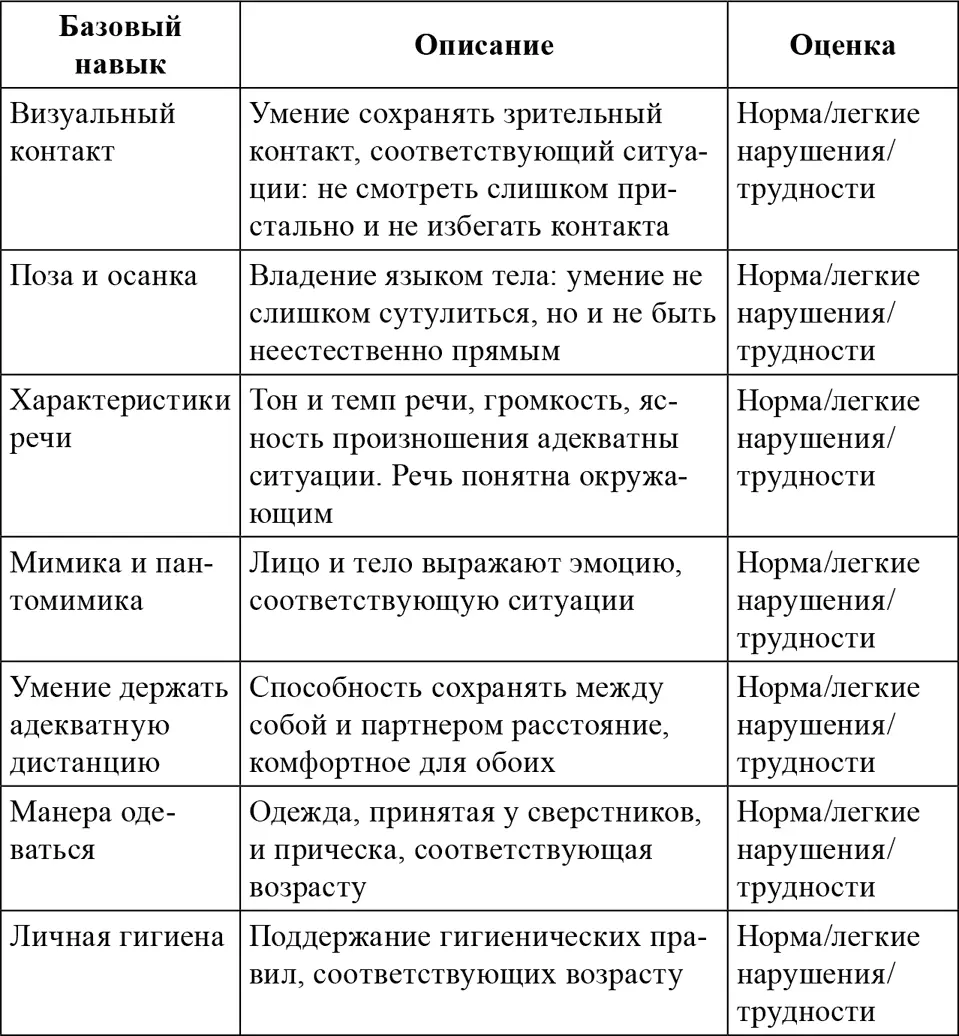Яэль Авраам - Почему со мной никто не дружит? Психологическая помощь детям-изгоям
- Название:Почему со мной никто не дружит? Психологическая помощь детям-изгоям
- Автор:
- Жанр:
- Издательство:Литагент ТеревинфDRM
- Год:2018
- Город:Москва
- ISBN:978-5-98563-611-6
- Рейтинг:
- Избранное:Добавить в избранное
-
Отзывы:
-
Ваша оценка:
Яэль Авраам - Почему со мной никто не дружит? Психологическая помощь детям-изгоям краткое содержание
В книге подробно описаны программы и техники индивидуальной и групповой работы с детьми, рассказывается, чем могут помочь им педагоги и родители. Основной посыл книги Яэль Авраам: группа может жить без «козлов отпущения», но это требует усилий и от детей, и от их родителей.
Издание адресовано психологам, учителям и родителям.
Почему со мной никто не дружит? Психологическая помощь детям-изгоям - читать онлайн бесплатно ознакомительный отрывок
Интервал:
Закладка:
14. Coie J.D. Towards a theory of peer rejection. In Eds. S.R. Asher & J.D. Coie. Peer rejection in childhood. Cambridge. UK: Cambridge University Press, 1990. Pp. 365–401.
15. Coie J.D., Sandstorm M.J. A Developmental Perspective on Peer Rejection: Mechanisms of Stability and Change. Child Development. 1999. Vol. 70 (4). Pp. 955–966.
16. Corsaro W.A. The sociology of childhood. CA: Pine Forge Press, 2005.
17. Dermir M., Jaafar J., Bilyk N., Ariff M.R. Social skills, friendship and happiness: A cross-cultural investigation. The Journal of Social Psychology. 2012. Vol. 152. Pp. 379–385.
18. Diamond G.S., Siqueland L., Diamond G.M. Attachment-Based Family Therapy for Depressed Adolescents: Programmatic Treatment Development. Clinical Child and Family Psychology Review. 2003. Vol. 6. № 2. June. Pp. 107–127.
19. Donohue K.M., Perry K.E., Weinstein R.S. Teacher’s classroom practices and children’s rejection by peers. Journal of Applied Developmental Psychology. 2003. Vol. 24. Pp. 91–118.
20. Downey G. CRSQ – Children’s Rejection Sensitivity Questionnaire. Columbia Social Relations laboratory. 2000.
21. Downey G., Feldman S. Implications of rejection sensitivity for intimate relationships. Journal of Personality and Social Psychology. 1996. Vol. 70. Pp. 1327–1343.
22. Downey G., Freitas A.L., Michaelis B., Khouri H. The self-fulflling prophecy in close relationships: Rejection sensitivity and rejection by romantic partners. Journal of Personality and Social Psychology. 1998а. Vol. 75. Pp. 545–560.
23. Downey G., Lebolt A., Rincon C., Freitas A.L. Rejection sensitivity and children’s interpersonal diffculties. Child Development. 1998b. Vol. 69. Pp. 1072–1089.
24. Downey G., Mougios V., Ayduk O., London B., Shoda Y. Rejection sensitivity and the defensive motivational system. Psychological Science. 2004. Vol. 15. Pp. 668–673.
25. Downey G., Pietrzak J., Ayduk O., Baldwin M.W. (Ed.) Rejection Sensitivity as an Interpersonal Vulnerability. In Interpersonal cognition. NY, NY, US: Guilford Press, 2005. Vol. XVIII. Pp. 62–84.
26. Edel A. Science and the Structure of Ethics. In International of Unifed Science. Foundations of the Unity of Science. Chicago: University of Chicago Press, 1961. Vol. 2 (3).
2 7. Erozkan A. Rejection sensitivity levels with respect to at tach ment styles, gender and parenting styles: A study with Turkish students. Social Behavior and Personality: an international journal. 2009. Vol. 37. Pp. 1–14.
28. Favazza P.C., Odom S.L. Promoting Positive Attitudes of Kindergarten-Age Children toward People with Disabilities. Exceptional Children. 1997. Vol. 63.
29. Feshbach N.D. Empathy: The formative years – implications for clinical practice. In Eds. A. Bohart & L. Greenberg, Empathy reconsidered: New directions in psychotherapy. Washington, DC: American Psychological Association, 1997. Pp. 33–59.
30. Friedberg R.D., McClure J.M. Clinical practice of cognitive therapy with children and adolescents: The nuts and bolts. Chapter 7: therapeutic socratic dialog. NY, London: The Guilford Press, 2002.
31. Har rist A.W., Bradley K.D. «You can’t say you can’t play»: I nter vening in the process of social exclusion in the kindergarten classroom. Early Childhood Research Quarterly. 2003. Vol. 18. Pp. 185–205.
32. Hetherington E.M., Parke R.D. Child psychology: A contemporary viewpoint (2nd ed.). N Y: McGraw-Hill, 1979.
33. Higgins E.T. When do self-discrepancies have specific relations to emotions? Journal of Personality and Social Psychology. 1999. Vol. 77 (6). Pp. 1313–1317.
34. Hoffman M.L. Empathy and moral development: Implications for caring and justice. NY: Cambridge University Press, 2000.
35. Hymel S. Interpretation of peer behavior: Affective bias in childhood and adolescence. Child Development. 1986. Vol. 57. Pp. 431–445.
36. Hymel S., Wagner E., Bulter L.J. Reputational bias: View from the peer group. In Eds. S.R. Asher & J.D. Coie. Peer rejection in childhood. NY: Cambridge University Press, 1990. Pp. 156–186.
3 7. Kivlighan D.M., Multon K.D., Brossar t D.F. Helpful impacts in g roup counseling: Development of a multidimensional rating system. Journal of Counseling Psychology. 1996. Vol. 43. Pp. 347–355.
38. Klein M. Our adults world and its roots in infancy. Human relations. 1959. Vol. 12. Pp. 291–303.
39. MacKenzie K.R. The concept of role as a boundary structure in small groups. In J.E. Durkin (Ed.), Living Groups: Group Psychotherapy and General System Theory. N Y: Brunner/Mazzel, 1981.
40. Mikami A.Y., Boucher M.A., Humphreys K. Prevention of peer rejection through a classroom-level intervention in middle school. The Journal of Primary Prevention. 2005. Vol. 26.
41. Mikami A.Y., Gregory A., Allen J.P., Pianta R.C., Lun J. Effects of a Teacher Professional Development Intervention on Peer Relationships in Secondary Classrooms. School Psych. Rev. 2011. Vol. 40 (3). Pp. 367–385.
42. Mikami A.Y., Lerner M.D., Lun J. Social Context Influences on Children’s Rejection by Their Peers. Society for Research in Child Development. 2010. Vol. 4. № 2. Pp. 123–130.
43. Minuchin S., Nichols M.P. Family Healing Strategies for Hope and Understanding. NY, N Y: The Free Press. 1998.
44. Olweus D. Bullying at school: What we know and what we can do. Cambridge, MA: Blackwell, 1993.
45. Olweus D. Olweus’ core program against bullying and antisocial behavior: A teacher handbook. Bergen, Norway, 2001.
46. Paley V.G. You can’t say you can’t play. Cambridge: Harvard University Press, 1992.
4 7. Peets K., Hodges E.V.E., Kikas E., Salmivalli C. Hostile attributions and behavioral strategies in children: does relationship type matter? Developmental Psychology. 2007. Vol. 43. Pp. 889–900.
48. Pillemer D.B. Momentous Events and the Life Story. Review of General Psychology. 2001. Vol. 5. № 2. Pp. 123–134.
49. Romero-Canyas R., Downey G., Berenson K., Ayduk Ö., Kang N.J. Rejection sensitivity and the rejection-hostility link in romantic relationships. Journal of Personality. 2010. Vol. 78. Pp. 119–148.
50. Segrin C., McNelis M., Swiatkowski P. Social Skills, Social Support, and Psychological Distress: A Test of the Social Skills Deficit Vulnerability Model. Human Communication Research, 2016. Vol. 42. Pp. 122–137.
51. Seligman M.E.P. Can Happiness be Taught? Daedalus. 2004. Vol. 133 (2). Pp. 80–87.
52. Shaver P.R., Mikulincer M. Attachment Orientations and Reaction to Ostracism in Close Relationships and Groups. The Oxford Handbook of Social Exclusion. Ed. by C.N. DeWall, 2013.
53. Singer J., Blagov P., Berry M., Oost K. Self-Defning Memories, Scripts and the Life Story: Narrative Identity in Personality and Psychotherapy. Journal of Personality. 2012. Vol. 81. Issue 6. Pp. 511-629.
54. Sizer T., Sizer N. The students are watching. Boston: Beacon Press, 1999.
55. Spence S.H. Social Skills Training with Children and Young People: Theory, Evidence and Practice. Child and Adolescent Mental Health. 2003. Vol. 8. № 2. Pp. 84–96.
56. Stern D.N. The Motherhood Constellation. A Unifed View of Parent-Infant Psychology. N Y: Basic Books, 1995.
5 7. Wilson B.J. The entry behavior of aggressive/rejected children: The contribution of status and temperament. Social Development. 2006. Vol. 15 (3). Pp. 463–479.
58. Winnicott D.W. The Child, the Family, and the Outside World. London: PelicanBooks, 1964.
Приложения
Приложение 1
Оценка базовых социальных навыков (Бланк регистрации результатов)

Приложение 2
Оценка сформированности сложных социальных навыков (Анкета)
В анкете число 1 означает «совсем нет», число 10 – «абсолютно точно – да». Выбери на шкале от 1 до 10 число, наиболее точно отражающее твое состояние.
1. Находясь в среде сверстников, чувствуешь ли ты себя равным, ощущаешь ли ты себя не лучше и не хуже их?
1 2 3 4 5 6 7 8 9 10
2. Проявляешь ли ты инициативу и умеешь ли присоединяться к группам людей твоего возраста?
1 2 3 4 5 6 7 8 9 10
3. Насколько комфортно ты чувствуешь себя в группах сверстников?
1 2 3 4 5 6 7 8 9 10
4. Завидуешь ли ты тому, что у твоего приятеля есть другие друзья?
1 2 3 4 5 6 7 8 9 10
5. Можешь ли ты сам организовать себе общение после школы (общаешься по телефону или в соцсетях с приятелями, приглашаешь друзей домой)?
1 2 3 4 5 6 7 8 9 10
6. Насколько ты можешь понять свое эмоциональное состояние в разных ситуациях (обида, радость, злость, страх, гордость и др.)?
1 2 3 4 5 6 7 8 9 10
7. Насколько ты понимаешь, что чувствует в какой-то момент времени твой друг или другие люди?
1 2 3 4 5 6 7 8 9 10
8. Можешь ли ты рассказать друзьям о том, что ты чувствуешь и в чем испытываешь затруднения?
1 2 3 4 5 6 7 8 9 10
9. Как ты считаешь, умеешь ли ты быть благодарным?
1 2 3 4 5 6 7 8 9 10
10. Насколько ты умеешь прощать обиды?
1 2 3 4 5 6 7 8 9 10
11. Умеешь ли ты хвалить друзей, говорить им комплименты, восхищаться их достижениями?
1 2 3 4 5 6 7 8 9 10
12. Насколько ты склонен заботиться о друзьях, например, делиться с ними тем, что у тебя есть?
1 2 3 4 5 6 7 8 9 10
13. Способен ли ты сотрудничать с друзьями?
1 2 3 4 5 6 7 8 9 10
14. Умеешь ли ты поддерживать друзей, помогать им, когда они в этом нуждаются?
1 2 3 4 5 6 7 8 9 10
15. Насколько ты владеешь собой, когда тебя нервируют или ранят?
1 2 3 4 5 6 7 8 9 10
16. Можешь ли ты первым начать беседу?
1 2 3 4 5 6 7 8 9 10
17. Умеешь ли ты сказать «нет», когда это требуется?
1 2 3 4 5 6 7 8 9 10
18. Можешь ли ты с уважением слушать другого, когда он излагает точку зрения, противоположную твоей?
1 2 3 4 5 6 7 8 9 10
19. Можешь ли ты поссориться с товарищем, а потом опять помириться?
1 2 3 4 5 6 7 8 9 10
20. Как ты думаешь, оценят ли тебя твои друзья как веселого, нескучного, приятного человека?
Читать дальшеИнтервал:
Закладка:










